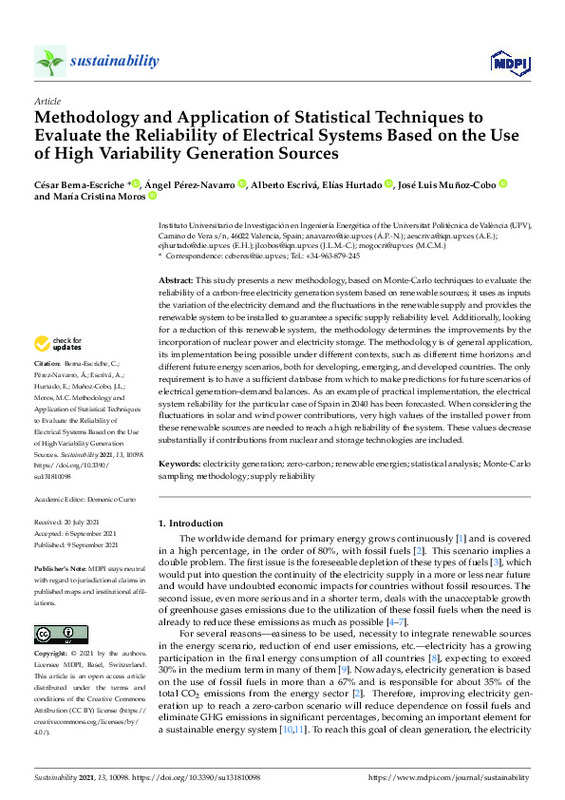|
Resumen:
|
[EN] This study presents a new methodology, based on Monte-Carlo techniques to evaluate the reliability of a carbon-free electricity generation system based on renewable sources; it uses as inputs the variation of the ...[+]
[EN] This study presents a new methodology, based on Monte-Carlo techniques to evaluate the reliability of a carbon-free electricity generation system based on renewable sources; it uses as inputs the variation of the electricity demand and the fluctuations in the renewable supply and provides the renewable system to be installed to guarantee a specific supply reliability level. Additionally, looking for a reduction of this renewable system, the methodology determines the improvements by the incorporation of nuclear power and electricity storage. The methodology is of general application, its implementation being possible under different contexts, such as different time horizons and different future energy scenarios, both for developing, emerging, and developed countries. The only requirement is to have a sufficient database from which to make predictions for future scenarios of electrical generation-demand balances. As an example of practical implementation, the electrical system reliability for the particular case of Spain in 2040 has been forecasted. When considering the fluctuations in solar and wind power contributions, very high values of the installed power from these renewable sources are needed to reach a high reliability of the system. These values decrease substantially if contributions from nuclear and storage technologies are included.
[-]
|









